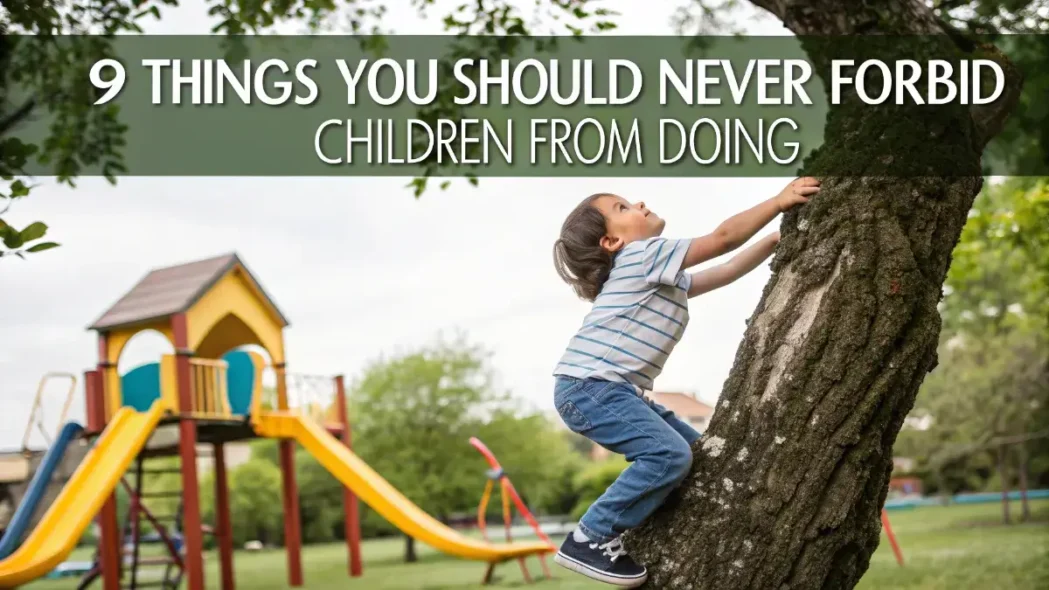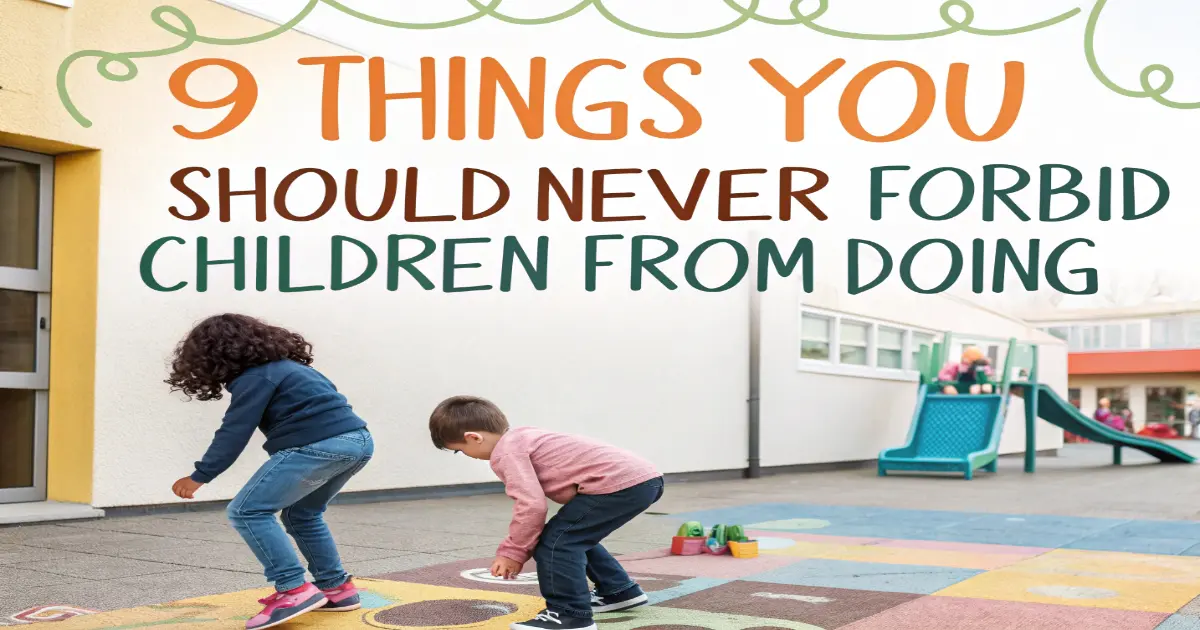Parenting is a wild ride, isn’t it? One minute, you’re marveling at your child’s curiosity, and the next, you’re wondering if you’ll ever get a moment of peace again. I’ve been there, exhausted, tempted to set strict rules to keep the chaos at bay. But I’ve learned that while boundaries can give kids a sense of security, clamping down too hard on certain things can backfire, leaving them feeling unsure or stifled. Psychologists agree that some freedoms are essential for their growth. So, let’s talk about nine things you should never forbid your kids from doing—and why letting them happen might just be the best gift you can give.
1. Asking Questions
Kids are born detectives, piecing together the world one “why” at a time. I’ll be honest—those endless questions can test my patience after a long day. But I’ve found that taking a moment to answer (or even just listen) does wonders. It shows my kids I value their thoughts and fuels their curiosity. I also make a point to ask them about their day. Sometimes I get a shrug or a quick “fine,” and that’s okay, I don’t push. Instead, I’ll share a bit about my day, like a funny story or something I learned. It’s a small way to model openness and keep our connection strong.
2. Feeling Angry or Jealous
Have you ever noticed how quickly kids can go from giggling to grumpy? They’re human, just like us, and negative emotions are part of the deal. I used to want to fix every frown, but now I realize that letting them feel angry or jealous is a healthy response. Their self-control is still a work in progress, so I don’t tell them to “snap out of it.” Instead, we talk it through—what’s bothering them, how they might handle it. It’s not about erasing those feelings; it’s about teaching them how to manage them.
3. Being Greedy
This one threw me at first. Greedy? Really? But think about it: kids deserve to have things that are theirs, just like we do. If my child clutches a favorite toy and says “mine,” I don’t guilt them into sharing. I might suggest a trade with a friend or taking turns instead. It’s a gentle nudge toward kindness without making them feel bad for wanting to hold onto something special. Forcing them to give it up can breed resentment, but guiding them builds generosity over time.
4. Saying “No”
I used to bristle when my kid said “no” to me, as if it were a personal challenge. But they’re not here to obey my every command; they’re their people. Shutting down their “no” feels like stomping on their boundaries. Now, I try to explain why certain things need to happen—like brushing teeth or bedtime—without dismissing their voice. It’s a balancing act, but it shows them respect goes both ways.

5. Having Secrets
As my kids get older, I’ve had to loosen the reins a bit. They need space to figure things out, and that includes keeping some thoughts to themselves. I still want to know what’s happening in their world, but I don’t pry into diaries or demand every detail. Instead, I ask about their friends or what they’re enjoying lately, leaving the door open for them to share when they’re ready. Trust is fragile—building it means showing I’m here, not hovering.
6. Being Afraid
Fear hits kids hard, whether it’s a looming doctor’s appointment or a creaky floorboard at night. I’ve learned not to brush it off with “Don’t be silly” or worse, “Boys don’t cry.” That teaches them to hide their feelings. Instead, I sit with them, let them know it’s okay to be scared, and ask what’s spooking them. Together, we figure out how to face it. It’s a small step toward trust and courage.
7. Being Noisy
Kids are loud—there’s no getting around it. They belt out songs, invent goofy games, and turn quiet moments into a chaotic scene. Sure, it’s tempting to shush them, especially when my head’s pounding. But I try to let it slide (within reason). Childhood is their one shot to be free before life piles on the rules. So, I embrace the noise—it’s the soundtrack of their joy.
8. Crying
Tears can feel like a puzzle I can’t solve, especially when I don’t know the cause. But telling my child to “stop crying” never works—it just tells them their feelings aren’t welcome. Now, I sit with them, say something like, “Looks like you’re upset,” and help them sort it out. Sometimes they need to let it flow, and that’s fine. We all do.
9. Making Mistakes
Mistakes sting, and it’s tough to watch my kids stumble. But if I jump in with criticism every time, they’ll stop trying altogether. Instead of scolding, I say, “Hey, we all mess up—it’s how we learn.” We discuss what happened and brainstorm next steps. It’s not about perfection; it’s about growth.
Bonus: Don’t Be Shy to Offer Help
Kids don’t always ask for help—maybe they’re shy, maybe they don’t know how. So, I step in with little offers: “Need a hand with that homework?” or “Want help tidying up?” It’s not about taking over; it’s showing them I’m here. Over time, it builds a habit—they’ll come to me when the stakes are higher.
Conclusion
Parenting isn’t about keeping everything neat and tidy. It’s about giving our kids room to be themselves—messy, noisy, emotional, and all. By letting them ask questions, feel their feelings, and stumble now and then, we’re setting them up to be confident and capable down the road. Next time your child does something on this list, take a breath and let it play out. You’re doing great, and they’re growing because of it. What’s one parenting rule you’ve let go of lately? I’d love to hear.


